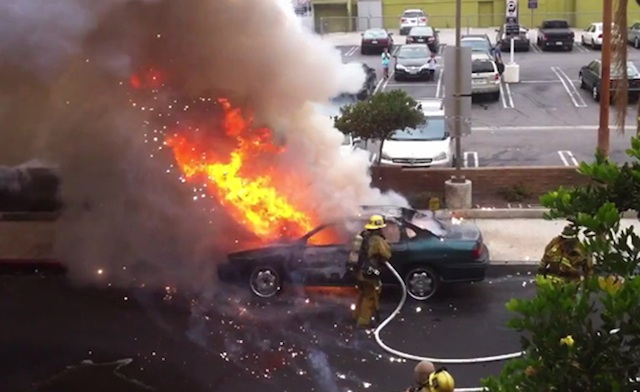
Millions of new cars have been recalled for safety reasons worldwide in the past few years, on near-new and older models.
Why are cars recalled? If a particular model has a manufacturing defect that may cause a safety issue, it will be recalled.
Some problems can be covered off by carmakers issuing service bulletins, so dealers can carry out remedial work when a car is in for service.
However, when the problem is safety-related, nothing can be left to chance and a full recall is the only way to ensure all owners are contacted.
In the first instance, a letter is sent to the registered owner to advise on the recall and the best cause of action.
It’s usually sent out within weeks of the recall notice being issued. Several follow-ups are always made.
So what should you do if a recall arrives in the mail?
In New Zealand, if you bought your car new or used from a franchised dealer, no problem – the carmaker and the dealer will combine to fix the fault free of charge.
If you bought it as a used import, things can get messy. Firstly, most but not all used imports are brought into New Zealand from Japan by parties other than the official representative of the vehicle brand.
Secondly, the used car you drive might be an “orphan” – it was built only for the Japanese home market, for instance, but found its way here as a used import – and the recall might have been issued for Japan only.
Orphan or not, those independent importers and/or traders who sold the vehicle in New Zealand are still legally responsible for all safety-related recalls and the costs of fixing faults.
So is the Motor Industry Association, the representative body in New Zealand of the manufacturing carmakers. A 2005 MIA code of conduct says its members must do their best to track down recalled models.
But an MIA member might not be aware of a Japan-only recall on a vehicle that it never sold new in NZ. How does it know where an obscure handful of used imports are if it has no record of importing them? How can it identify them?
That’s where the New Zealand Transport Agency comes in. The Transport Registry database records the make and model of every vehicle registered in the country and will supply details of owners to the MIA member.
The MIA member will then notify the owners of the used import being recalled and ask them to have it fixed.
Whether or not they do so is another story. Why? Because around 20 per cent of the names and addresses in the Transport Registry are wrong. That’s one of the reasons why roughly the same percentage of recalls are never repaired. Also, some owners just ignore the recall.
NZTA technical support acting manager Ian Baggott says the inaccuracy of owners’ names on the register is one of the main problems.
“The NZTA has been looking at ways to improve the completion rate of safety recalls by introducing a business process to have our Warrant of Fitness vehicle inspectors assist with making sure owners are made aware of outstanding recalls,” Mr Baggott said.
The problem isn’t confined to New Zealand. Carfax, a company that sells vehicle history reports, says there were almost three million used cars listed for sale in the US in 2011 that still were subject to outstanding recalls.
[box size=”large” style=”rounded”]So, should you be worried about a recall?
No. In most cases they’re ‘just in case’ recalls. The chance of your car suffering a catastrophic failure is usually very slim.
That doesn’t mean you shouldn’t have the car fixed. How are cars recalled?
Recalls are governed by the NZTA. When a carmaker wants to recall a car, it contacts the NZTA, which issues a recall number. It then accesses ownership data from its database.
What should you do if I think your car has been recalled?
If you hear about a recall that you think might affect your car, contact your local dealer, check the carmaker’s website or give them a call.
Where do you take your car to get recall work done?
You simply have to make an arrangement to take your car to a franchised dealer of the make of the car you own to get the work completed. Remember, it has to be a franchised dealer – not an independent garage down the road.
Do you have to pay for recall work?
Absolutely not – it will be carried out free of charge. If a dealership tries to charge you for any recall work, refuse and contact the carmaker’s HQ. The owner should first make sure the repair is covered by a recall or service warranty.
Can you get compensation for recall work?
You can always ask, but don’t expect any. A carmaker is not obliged to compensate you for your inconvenience – that’s just down to dealer goodwill.
Will a recall affect the value of your car?
As long as you have the work done, no.
What to do if you are unhappy with any aspect of the recall process?
Recalls are covered by a code of practice. If you’re unhappy with the process you should first complain to the carmaker.
Do dealers and carmakers mind recalls?
Recalls don’t seem to have harmed Toyota, a company that has had its fair share in recent years. A recall is an opportunity for a carmaker and dealer to leave customers with a positive impression.[/box]
* Website for recalls: https://www.vehiclerecallsafety.nzta.govt.nz/SafetyRecallsDatabase.aspx
